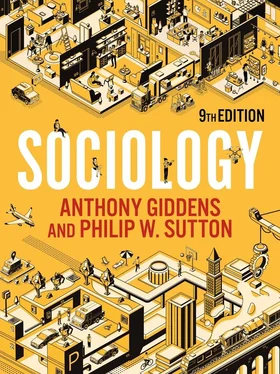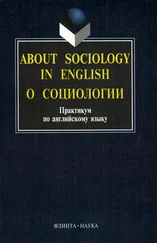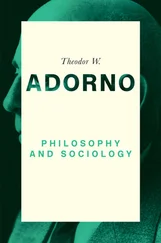Chapter 3looks at sociological theories. Theories are an essential part of all scientific subjects because they provide explanations rather than descriptions that simply list relevant facts. For example, we might find that the proportion of married women in Australia who are in work today is higher than it was in the 1950s. Such bald statistics are certainly useful, but they are crying out for an explanation – why are more married women working today than in the past? Good theories provide explanations. They tell us why something has happened or changed and in that way they broaden our knowledge. In chapter 3we introduce some important sociological theories including Marxism, feminism, functionalism, structuration theory, postcolonialism, postmodernism and more. You should not be put off by these labels, which are just shorthand ways of describing different groups of sociologists who interpret and aim to understand the social world.
In the rest of this chapter we first discuss sociology as a way of thinking about the world which, once you have mastered it, becomes very difficult to avoid. In short, once a sociologist, always a sociologist! World events, political debates, personal relationships, family life: you will see all of these and many more in a different light once you have developed a sociological way of seeing and thinking.
Second, we introduce the ideas of some of the sociological thinkers of the nineteenth and early twentieth centuries who established the subject as an academic discipline. We connect these thinkers to the times they lived through to illustrate the emerging social problems they tried to solve and how they went about it. We then discuss some of the approaches to sociology that came afterwards. However, this is not a comprehensive list, and you will need to read chapter 3, on ‘Theories and Perspectives’, for more recent theories.
Third, we look at some of the uses of sociology. Many students are attracted to sociology because they have a desire to help others and want a suitable ‘people-centred’ career. Some sociology graduates find careers in the caring professions, social work, teaching or the criminal justice system. Others use their research skills and knowledge to good effect in business management, market research, local and national government administration or research consultancy. Still others (after more study) become professional sociologists themselves working in universities and colleges. While studying sociology can be the first step on the path to a rewarding and satisfying career, some individuals study sociology simply because they want to understand better the world we live in. This is sociology as personal enlightenment relatively unconnected to a specific career path.
Some sociologists use their training and skills in very practical ways to try and improve the conditions of life for people by intervening to change an existing situation. This branch of the discipline is known as ‘applied sociology’, where many studies of homelessness, poverty, unemployment, drug addiction, self-harm, and so on, lead to interventions. Based on their research findings, applied researchers may try out potential solutions on a small scale or make recommendations for changes to government policy or service provision.
The chapter ends with recent ideas of the need for sociologists to engage more with the general public and the media if sociology is to have a greater impact on society. We have become used to seeing psychologists, historians and political scientists as experts on radio, on television news and in documentaries, but rarely do we see sociologists. This section discusses why this is so and what sociologists can and should do about it. However, we begin by outlining what it means to ‘think sociologically’ – a basic prerequisite to the practice of ‘doing sociology’.
The sociological imagination
Studying sociology is not just a routine process of acquiring knowledge from books like this one. Learning to think sociologically means cultivating our imagination in a specific way. The sociologist must be able to break free from the immediacy of their own personal circumstances to see things in a wider social context. Practising sociology depends on developing what the American sociologist C. Wright Mills (1970), in a famous phrase, called a sociological imagination.
The sociological imagination demands that we ‘think ourselves away’ from the familiar routines of our daily life in order that we may look at them from a new point of view which may appear strange, at least at first. The best way to illustrate this is with something so ordinary it usually passes without comment: the act of drinking a cup of coffee. What could sociology possibly find to say about such a commonplace and uninteresting act?
First, coffee may be a pleasant drink, but it also has symbolic value as part of our day-to-day social activity, and the rituals associated with coffee drinking can be more significant than consuming the actual drink. For many people, a cup of coffee in the morning is the centrepiece of a personal routine and an essential start to the day. Morning coffee is then followed later in the day by coffee with others – the basis of a group, not just an individual ritual. People who arrange to meet for coffee are probably more interested in socializing and chatting than drinking, and, in all societies, drinking and eating provide occasions for social interaction – a rich subject matter for sociologists to study.
Second, coffee contains caffeine, a drug which has a stimulating effect on the brain. Many people drink coffee for the ‘extra lift’ this active substance provides. Long days at the office or late nights studying in the library are made more tolerable by regular coffee breaks. And though coffee is a habit-forming substance, coffee ‘addicts’ are not regarded as drug users. This is because, like alcohol, caffeine is a socially acceptable and legal drug, whereas cocaine and heroin, for example, are not. Yet some societies tolerate the consumption of cocaine but frown on both coffee and alcohol. Sociologists are interested in why these differences exist, how they developed and whether they are changing.

Meeting friends for coffee retains its place as part of a widespread social ritual. Yet today’s specialist coffee shops cater to younger consumers, offering a much wider range of caffeine drinks in fashionable environments that look and feel closer to bars and nightclubs than traditional cafés and teashops.
Third, when we drink a cup of coffee we are unwittingly caught up in a complex set of social and economic relationships stretching right across the planet. Coffee links people in the wealthiest and the most impoverished parts of the world, as it is consumed mainly in the relatively rich countries but grown primarily in relatively poor ones. Around 125 million workers depend on the coffee trade to earn a living (Fairtrade Foundation 2020), but many labourers are poorly paid and live in poverty. Around half of coffee workers in Brazil have no formal contract of employment, and inspectors have found that many workers earn less than the legal minimum. Most workers are paid around R$14 (US$3.43) per 60 litre sack they pick, which can take a whole day’s labour for some women (Teixeira 2019). Some of the largest coffee companies, including Nestlé, Jacobs Douwe Egberts and Starbucks, have admitted that some of their coffee beans have been sourced from Brazilian plantations that use child and slave labour (Hodal 2016; Canning 2019).
Coffee is one of the most traded agricultural commodities globally, providing many countries in South and Central America, Mexico, Africa, Asia and Oceania with their largest source of foreign exchange (ICO 2018). The production, transportation and distribution of coffee require continual transactions between people thousands of miles away from the individual coffee drinker. Studying such global connections is an important task for sociologists.
Читать дальше













